Bentley looks towards an electrified, grand touring future with its twin release
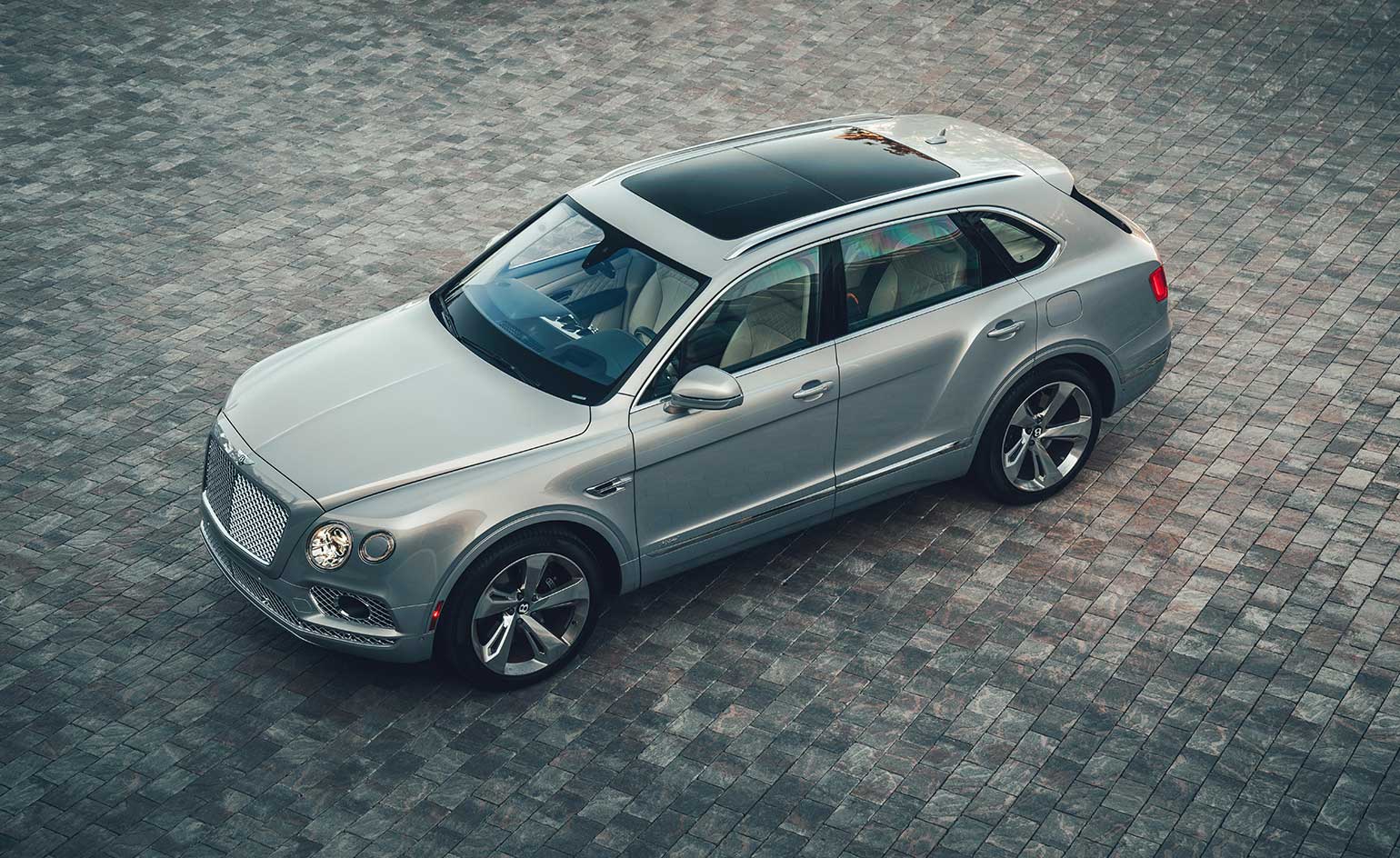
It is Bentley’s centenary year. Founded in July 1919, the car maker has weathered changing times and changing ownership to become the best-selling luxury manufacturer in the world. But times are set to change yet again. Our task is to fly half-way around the world and back again in order to extol the virtues of Bentley’s first hybrid car, sampling it in the environs that the company has deemed to be its most likely habitat, Silicon Valley. At the same time, Bentley is also unveiling the V8-powered versions of its acclaimed new Continental GT, hitherto only available with a giant W12 engine.
Both cars are unequivocally Bentleys, bearing all the hallmarks and qualities the brand has gathered around it over the past 15 or so years, but they are very different in style and execution. Yet paradoxically, it is the conventionally-powered car that is more relevant to the company’s immediate future. In Adrian Hallmark, Bentley has a true motor industry veteran as a CEO, a man with extensive experience in a career that began at VW and Porsche. He had a stint at Bentley during the pioneering early years of VW ownership before moving to global strategy director at JLR. Hallmark has been at the helm of Bentley since late 2017.
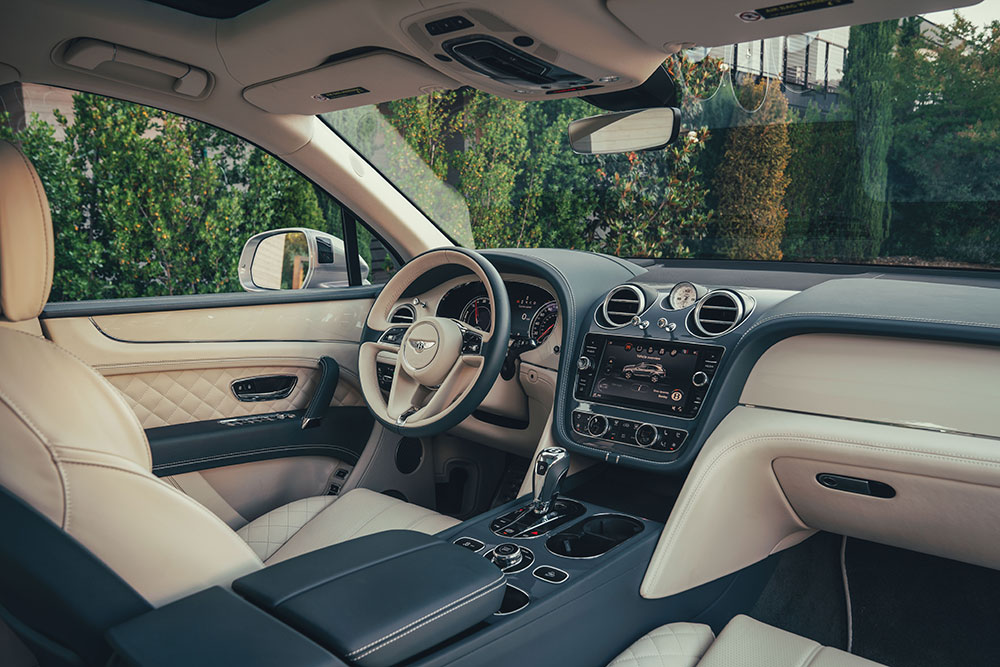
The new Bentley Bentayga Hybrid combines a V6 petrol engine with a battery pack
Since he started, the company has had to weather challenges of legislation and supply, culminating in a worrying dip in sales (just like practically every other car maker on the planet). But Hallmark has a five-step plan to fight back, starting with a radical streamlining of the company’s hallowed production facility in Crewe, where wizards of space and time managed to shave 25 per cent off the typical time it takes to build a Bentley.
The company is also poised to grow, bouncing back from the sales dip with new cars like the ones we’re here to drive. Most importantly, it will have to navigate yet another round of emissions legislation, the most draconian yet (this will be step three). That’ll partly be tackled by the introduction of plug-in hybrid variants of every available Bentley by 2023 (assuming that the defiantly ‘unhybridisable’ Mulsanne has finished production by that point). The final point in his plan is to deliver the first pure electric Bentley – ‘by 2025 at the latest,’ according to Hallmark, who adds that ‘it has to be a true Bentley, we can’t just take a [Porsche] Taycan and ‘Bentlify’ it.’
So, interesting times. The new Bentayga Hybrid is the company’s first toe in the pool of this electrified future. The Bentayga is undeniably divisive. Launched in 2015, Bentley’s first SUV has attracted the most criticism for its looks, which transcend mere brutish-ness and err on the side of uncomfortable. It’s not exactly a masterpiece of packaging, either, with that big body enclosing a relatively cosy passenger compartment. The need to combine a new V6 petrol engine with a battery back and the assorted motors and control systems encroaches still further on the available space, although the mechanical systems and their myriad complexities are hidden away with typical thoroughness.
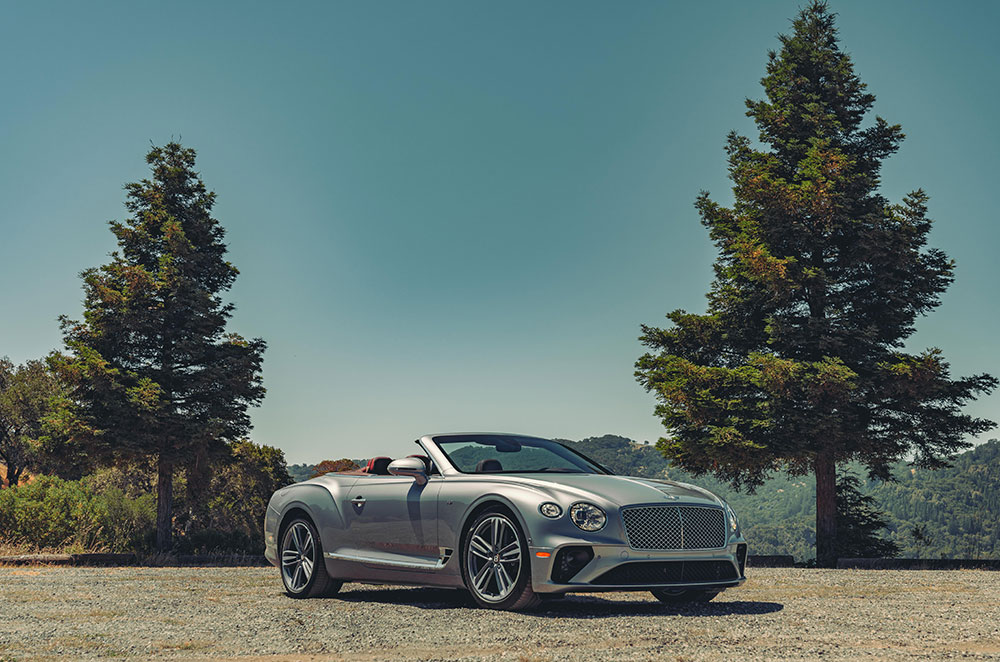
The new Continental GT features a V8 engine for the first time
The flagship Mulsanne aside, the announcement of the new Flying Spur means the Bentayga is now the oldest model in Bentley's fleet. Although hybrid capability was baked into this its platform from the outset, it is still compromised by weight and packaging. The stats bear this out; the 311-volt battery can theoretically run 16 miles on pure electric power, at a maximum speed of 84 mph, thanks to the 128PS E-Motor (equivalent to about 126 bhp). Combined with the 360PS V6, and the car will dispatch 60 mph in a credible 5.2 seconds and run on to 158 mph. Although this top speed is largely irrelevant in the real world, it’s worth pointing out that this is the ‘slowest’ Bentley since the original 80s-era Turbo R.
The meticulous standards of craft and assembly are also translated into the mechanical workings; everything is seamless and fuss-free. The same can't be said for the interface, which has been leapfrogged by its svelte new GT sibling. And should a car really try to be all things to all people? SUVs have spent the best part of two decades trying to prove that Sport and Utility are a natural fit, yet we're increasingly seeing less actual need for either. In stark contrast is the new Continental GT, now with a V8 engine (a unit shared with Porsche and Audi) for the first time. Since 2003, 70,000 GTs have been delivered and there’s broad consensus that the newest generation is not only the best Bentley ever, but also a class leader if you're in the market for a traditional styled grand tourer.
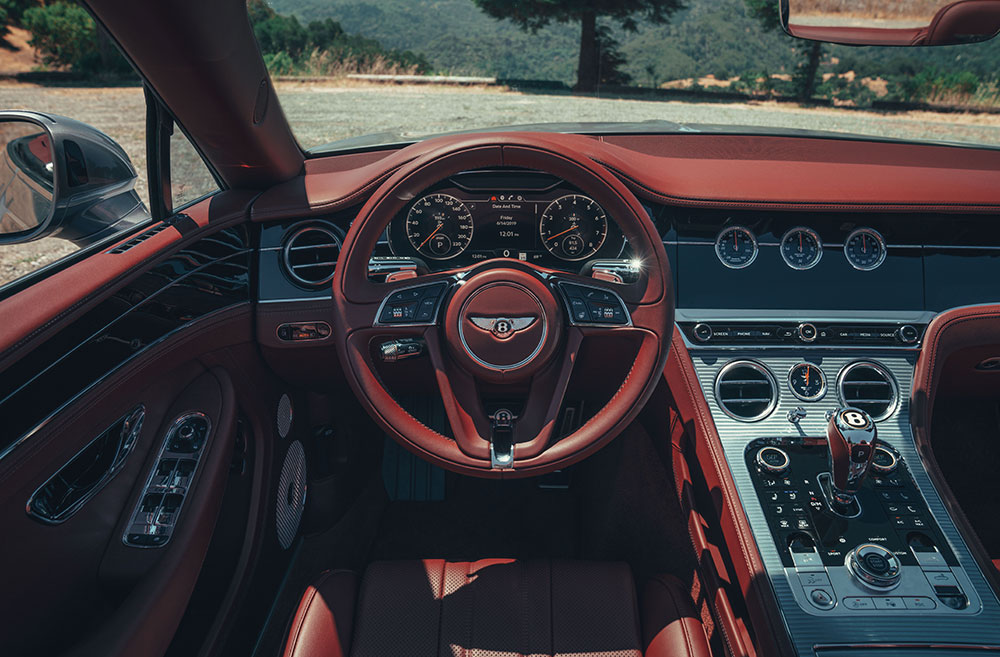
The spacious interior of the Continental GT V8 is decked out with a full suite of technological gadgets and fine materials
There's much more to the GT than mere tradition. For a start, there's a grace and purity to the form, coupled with a lightweight structure that allows Bentley to load up on gadgets and fine materials with a devil may care attitude. The interior is spacious and majestically appointed, with a full suite of properly up to date technology in a surprisingly traditional layout, if you discount the party trick revolving touch screen that can be optioned for the centre of the dash. That brand-new platform promises even more in the next few years, with an as-yet-unannounced hybrid variant that could just be the Holy Grail of performance, range and refinement.
Bentley is hinting strongly that grand touring will be the core of its future, with titanic performance simply taken for granted. There's no doubt that our demand for higher and higher speeds is simply unsustainable in any number of ways (the V8 tops out at 198 mph and reaches 62 in an impressive four seconds flat), but Bentley's customers want the best. For now, that means combining grace and space with pace. Unlike its SUV stablemate, the Continental GT V8 does all three without compromise and looks set to win the efficiency stakes as well.
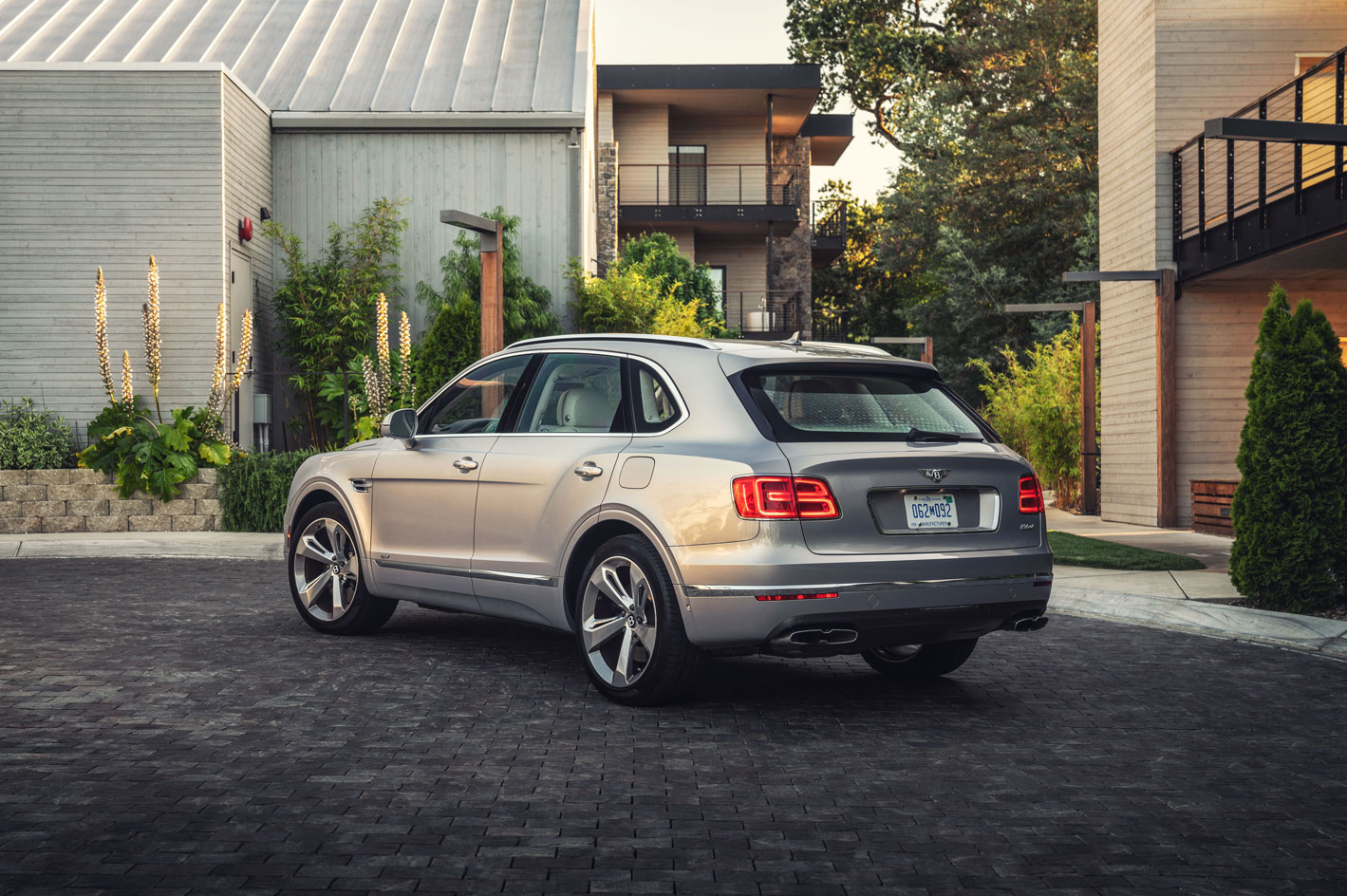
The Bentayga Hybrid is the company's first foray into the electrified future

Bentley Bentayga’s mechanical systems and myriad complexities are hidden away with typical Bentley thoroughness
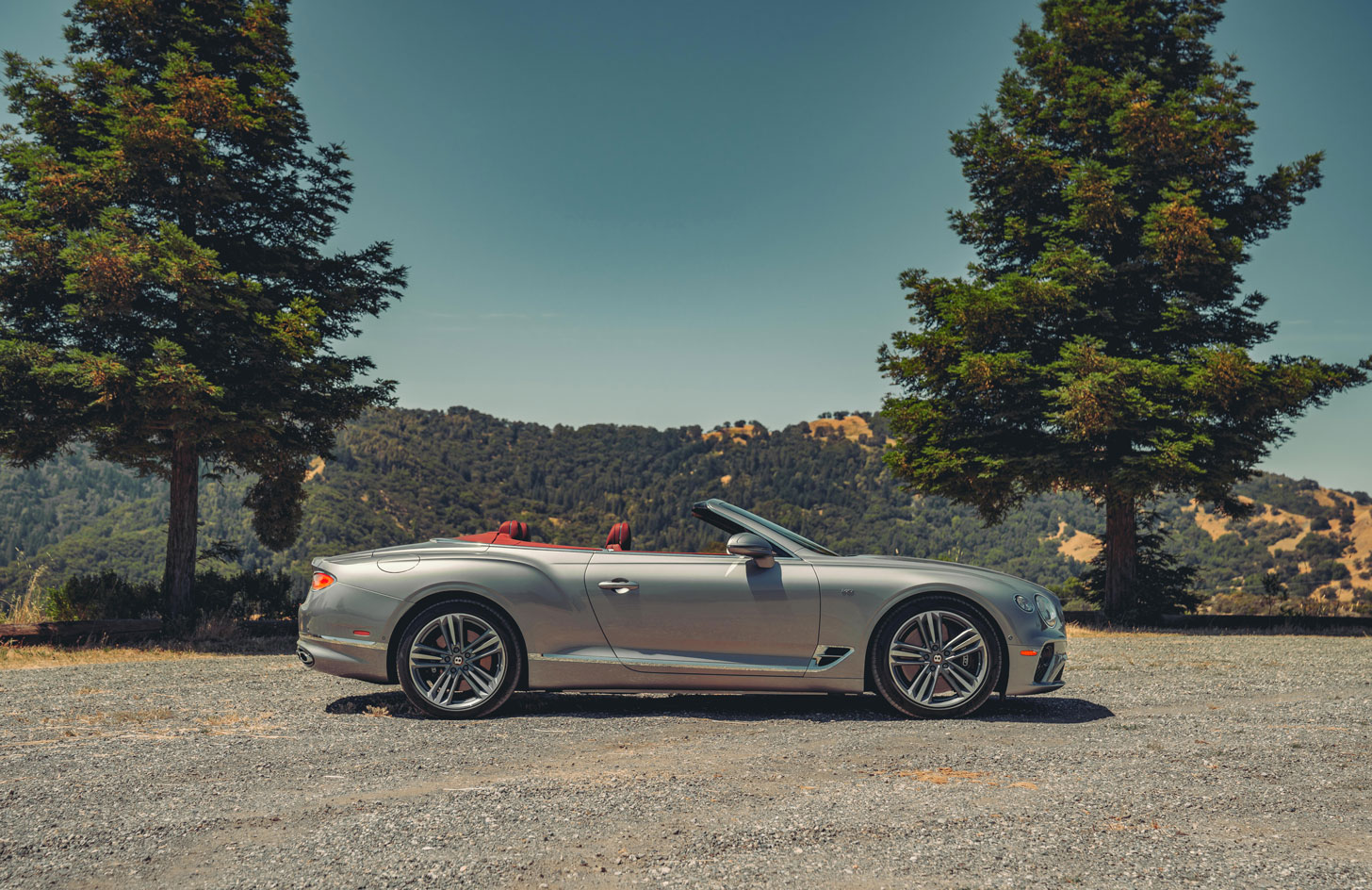
The Continental GT has grace and purity in its form, coupled with a lightweight structure

The interior of the Continental GTT is spacious and majestically appointed, with a full suite of properly up to date technology in a surprisingly traditional layout
INFORMATION
Bentley Bentayga Hybrid, from £113,500. Bentley Continental GT V8, from £148,800. bentleymotors.com
Wallpaper* Newsletter
Receive our daily digest of inspiration, escapism and design stories from around the world direct to your inbox.
Jonathan Bell has written for Wallpaper* magazine since 1999, covering everything from architecture and transport design to books, tech and graphic design. He is now the magazine’s Transport and Technology Editor. Jonathan has written and edited 15 books, including Concept Car Design, 21st Century House, and The New Modern House. He is also the host of Wallpaper’s first podcast.
-
 This year's US Pavilion asks visitors to gather round
This year's US Pavilion asks visitors to gather round‘PORCH: An Architecture of Generosity’ is a celebration of togetherness
-
 Zaha Hadid Architects’ spaceship-like Shenzhen Science and Technology Museum is now open
Zaha Hadid Architects’ spaceship-like Shenzhen Science and Technology Museum is now openLast week, ZHA announced the opening of its latest project: a museum in Shenzhen, China, dedicated to the power of technological advancements. It was only fitting, therefore, that the building design should embrace innovation
-
 ‘The work is an extension of myself’: Michaela Yearwood-Dan on her debut show at Hauser & Wirth
‘The work is an extension of myself’: Michaela Yearwood-Dan on her debut show at Hauser & WirthLondon-based artist Michaela Yearwood-Dan continues her rapid rise, unveiling monumental new paintings in ‘No Time for Despair’
-
 Mika Cars wants to build the Mino, a sporty, ultra-compact electric two-seater for the open road
Mika Cars wants to build the Mino, a sporty, ultra-compact electric two-seater for the open roadAn evolution of Mika’s Meon electric beach buggy, the little Mino is an ultra-light EV with big-car aspirations
-
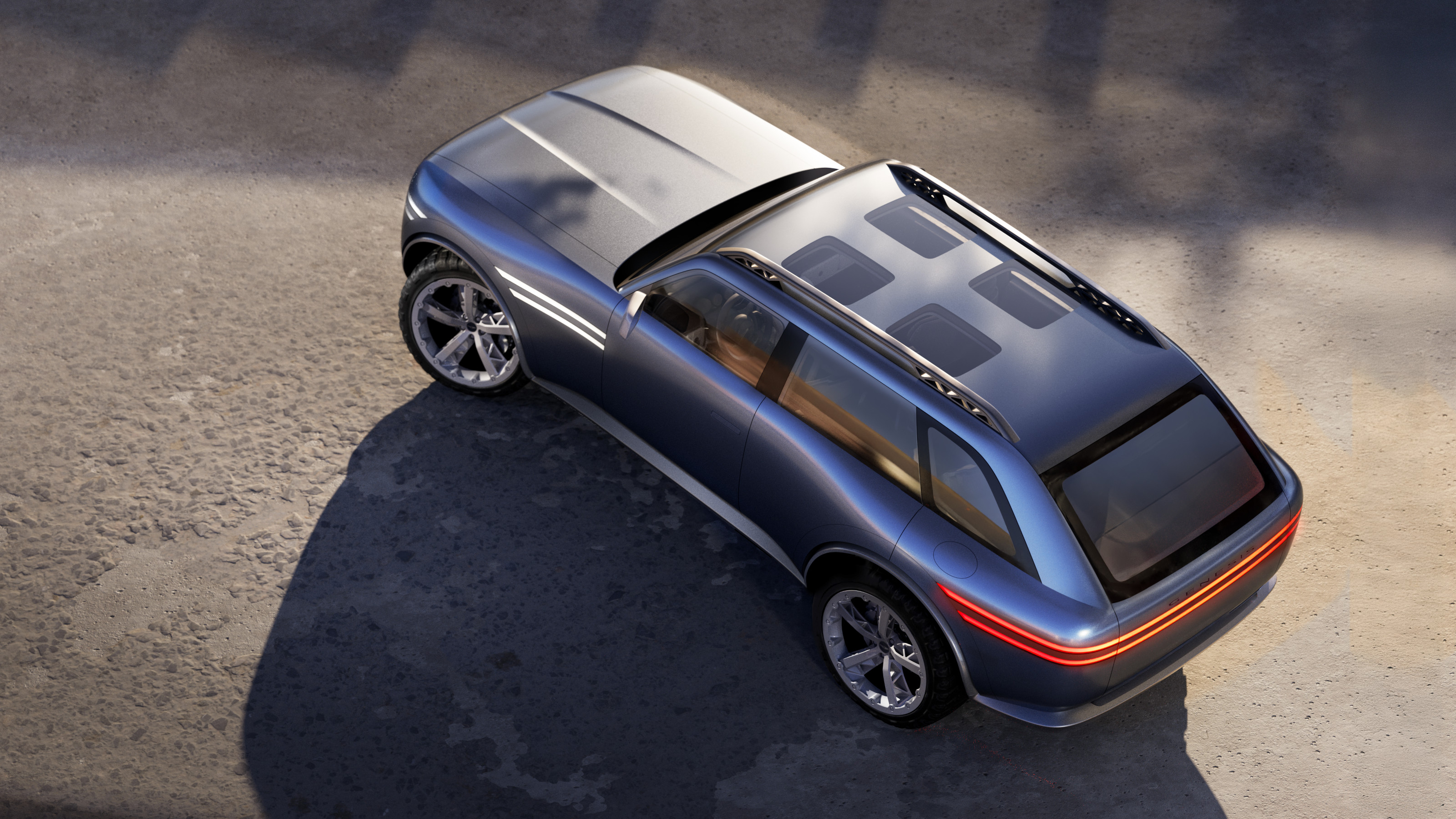 Our pick of the reveals at the 2025 New York Auto Show, from concept SUVs to new EVs
Our pick of the reveals at the 2025 New York Auto Show, from concept SUVs to new EVsInterest in overseas brands remained strong at this year’s NY Auto Show despite the threat of tariffs designed to boost American-owned brands
-
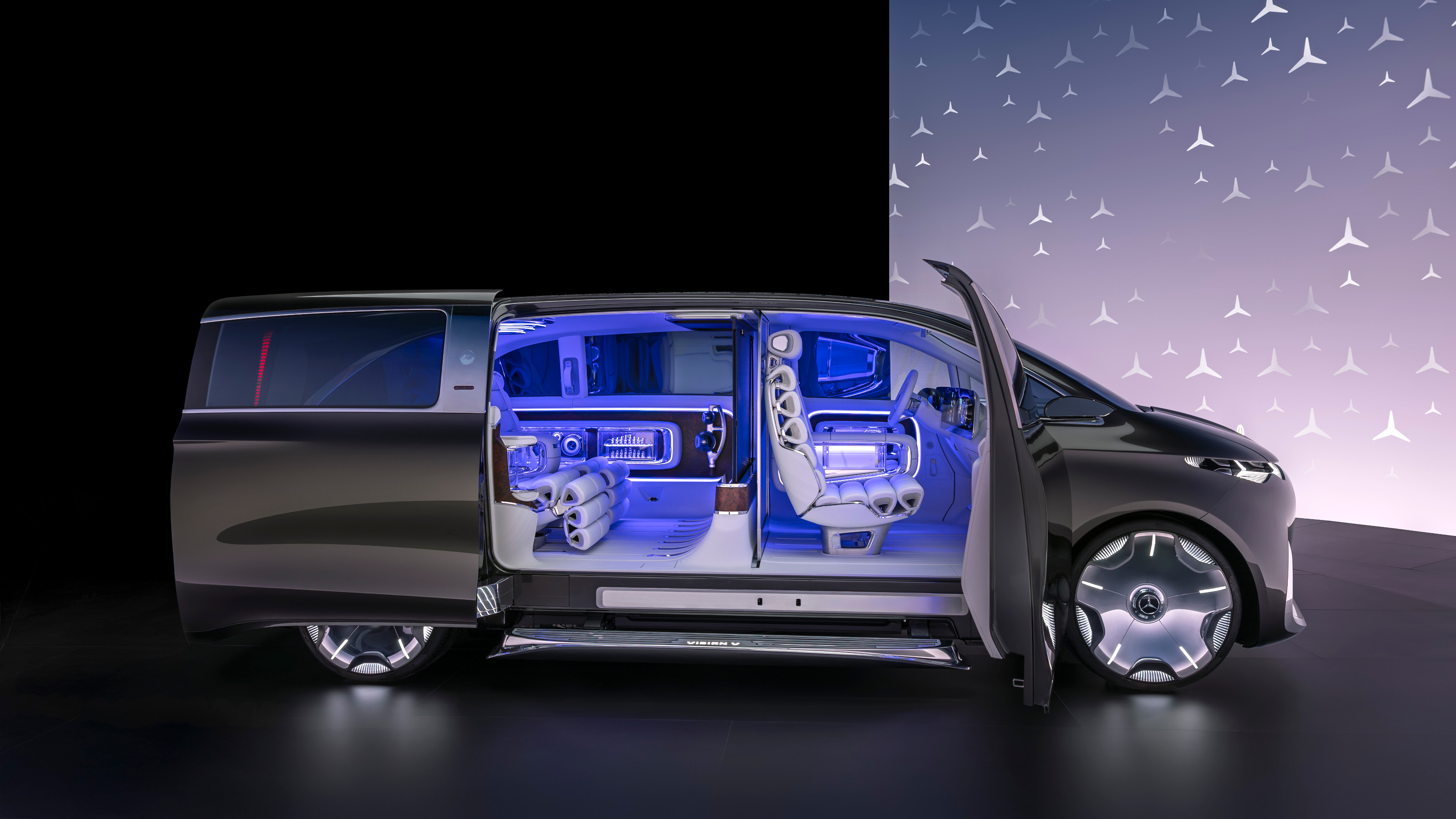 Mercedes-Benz previews its next-gen people mover with an ultra-luxury EV concept
Mercedes-Benz previews its next-gen people mover with an ultra-luxury EV conceptThe Mercedes-Benz Vision V Concept is an art deco picture palace on wheels, designed to immerse passengers in parallel worlds as they travel
-
 2025 Seoul Mobility Show report: all that's new and notable
2025 Seoul Mobility Show report: all that's new and notableOpened at a time of high national drama, the 2025 Seoul Mobility Show has gone on to underscore Korea’s place at the cutting edge of the auto industry. Guy Bird was there
-
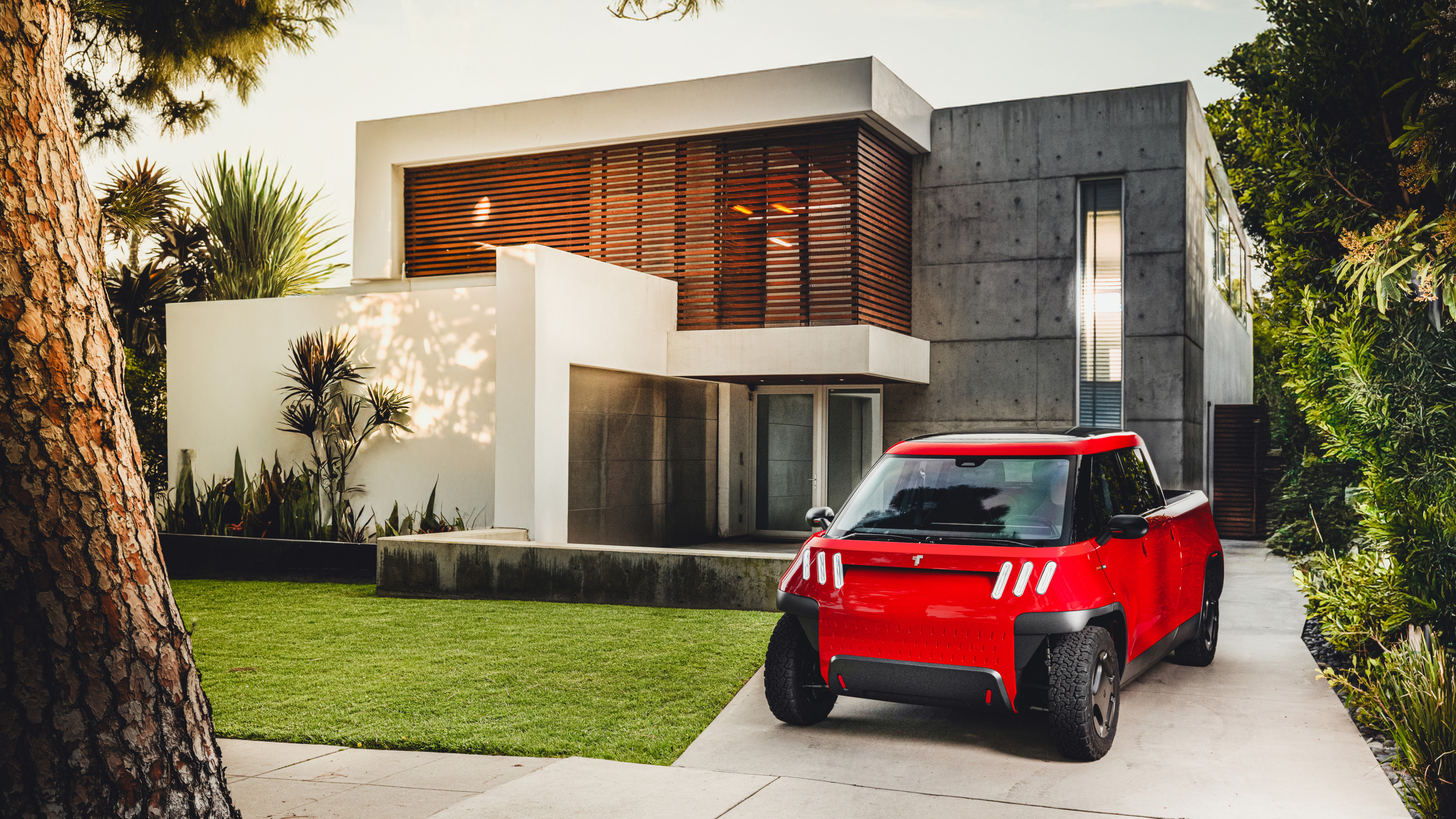 Meet the final drivable prototype of the Telo MT1 pickup truck, shaped by Fuseproject
Meet the final drivable prototype of the Telo MT1 pickup truck, shaped by FuseprojectThe Telo MT1 is a modestly scaled EV that turns the traditional all-American approach to pick-up truck design on its head
-
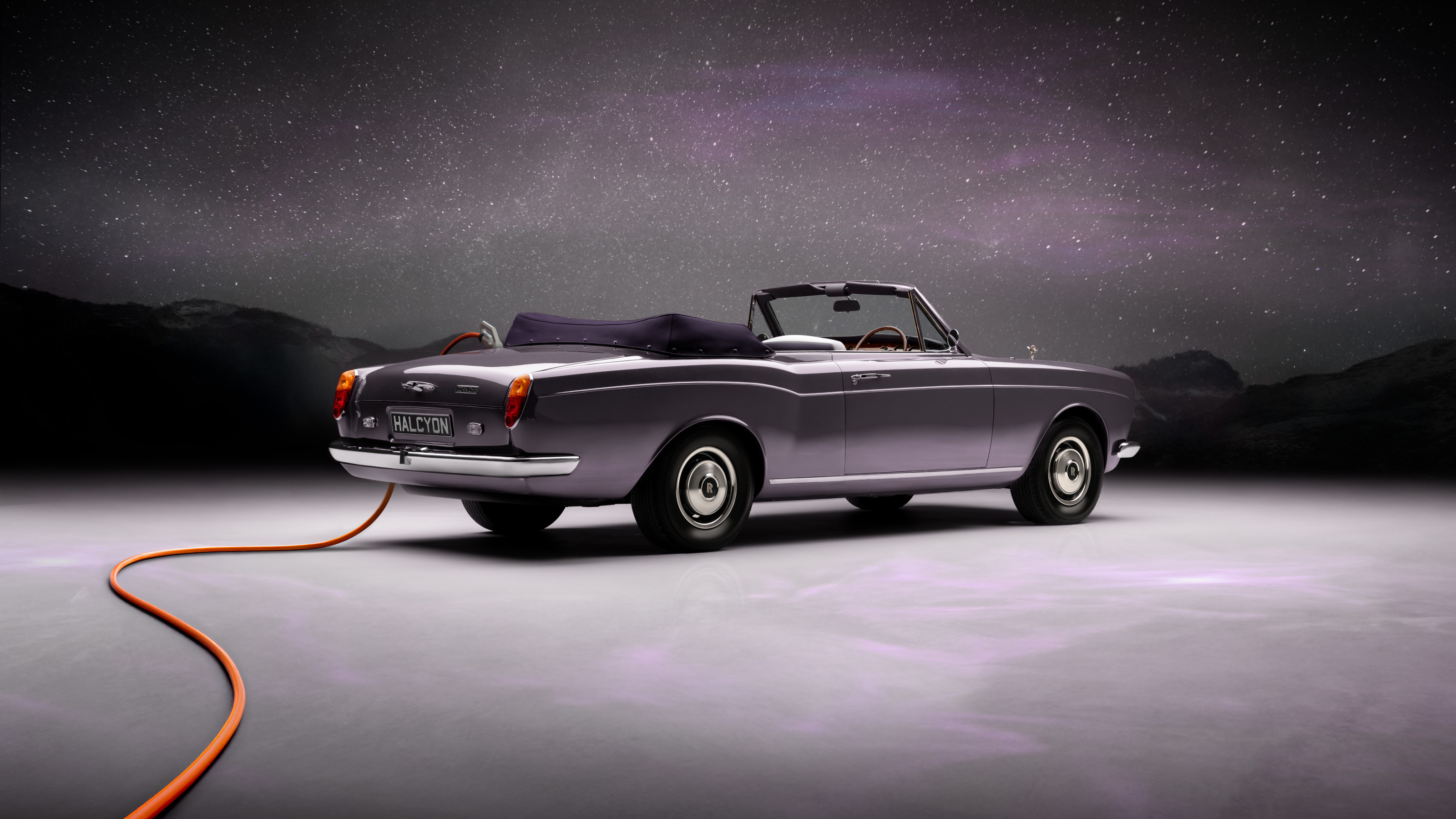 EV start-up Halcyon transforms a classic 1970s Rolls-Royce into a smooth electric operator
EV start-up Halcyon transforms a classic 1970s Rolls-Royce into a smooth electric operatorThis 1978 Rolls-Royce Corniche is the first fruit of a new electric restomod company, the Surrey-based Halcyon
-
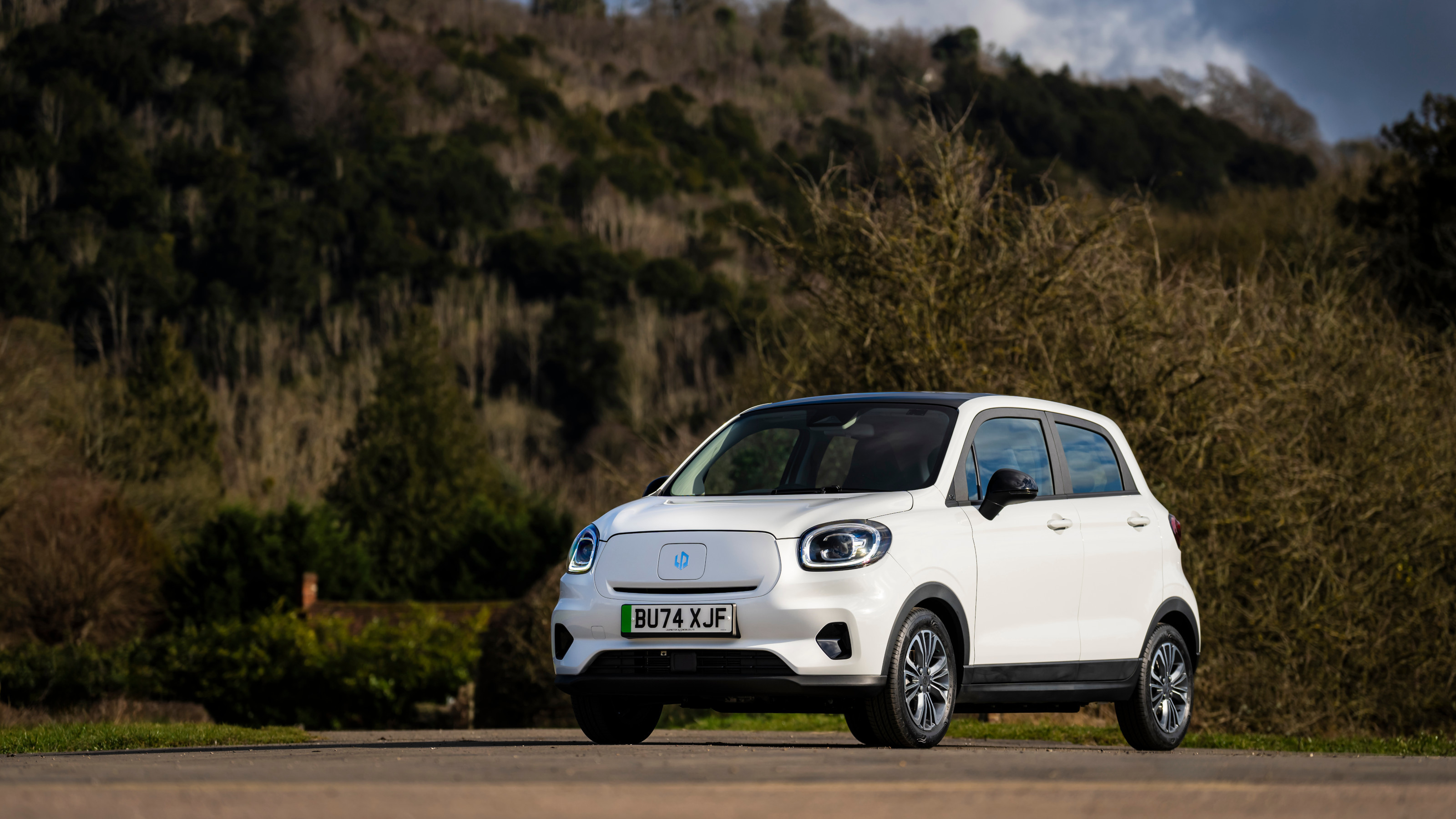 China’s Leapmotor pounces on the European car market with its T03 city car and C10 SUV
China’s Leapmotor pounces on the European car market with its T03 city car and C10 SUVLeapmotor’s tiny electric city car could be just the tonic for cramped urban Europe. We sample the T03 and its new sibling, the fully loaded C10 SUV, to see if the company’s value proposition stacks up
-
 Wallpaper* takes the wheel of the Bentley Blower Jnr for a rich automotive experience
Wallpaper* takes the wheel of the Bentley Blower Jnr for a rich automotive experienceHedley Studios has shrunk the mighty Bentley Blower into this all-electric, road-legal barnstormer. We take it to the streets of London